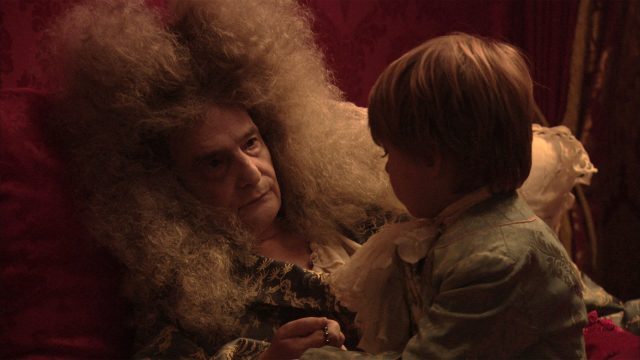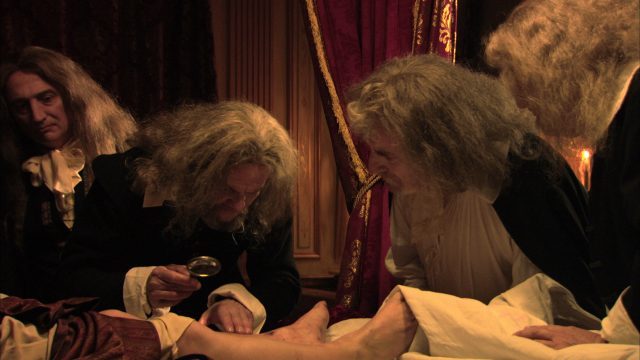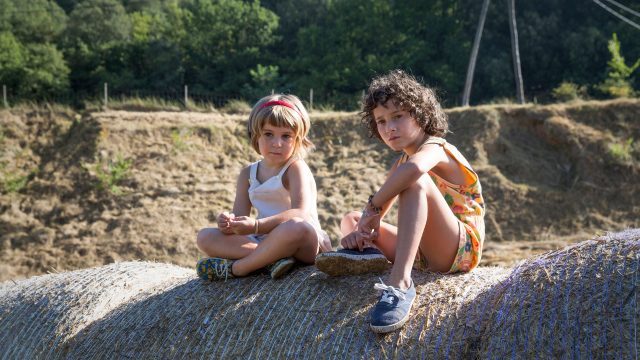
Paula Robles and Laia Artigas give superb performances in Carla Simón’s award-winning Summer 1993
SUMMER 1993 (Carla Simón, 2017)
Film Society of Lincoln Center
Elinor Bunin Munroe Film Center, Francesca Beale Theater
144 West 65th St. between Broadway & Amsterdam Ave.
Opens Friday, May 25
212-875-5050
www.filmlinc.org
summer1993.oscilloscope.net
 Named Best First Feature at the 2017 Berlinale, Summer 1993, Carla Simón’s autobiographical full-length debut, is an exquisite, deeply involving tale about an extraordinary young girl facing a new life after both her parents die of AIDS. Six-year-old Frida (Laia Artigas) must move from Barcelona to La Garrotxa in the Catalan countryside, where she will live with her uncle Esteve (David Verdaguer), her mother’s brother; his wife, Marga (Bruna Cusí); and their four-year-old daughter, Anna (Paula Robles). Unsurprisingly, Frida has a difficult time adjusting. When she plays with other kids and skins her knee, a scared mother whisks away her child immediately, afraid of the virus. Frida begins acting out, first in small ways, then in bigger ones, taking advantage of her cousin Anna’s caring, innocent nature. She somewhat relaxes when her grandparents (Fermí Reixach and Isabel Rocatti) and other friends and relatives visit, including Lola (Montse Sanz), Angela (Berta Pipo), Irene (Etna Campillo), and Cesca (Paula Blanco), but going back to Barcelona is not an option. Esteve keeps giving his niece the benefit of the doubt while Marga grows more and more worried about Frida’s behavior, which becomes more complex and dangerous, especially toward Anna. All the while, Frida feigns innocence, until even she realizes she may be taking things too far.
Named Best First Feature at the 2017 Berlinale, Summer 1993, Carla Simón’s autobiographical full-length debut, is an exquisite, deeply involving tale about an extraordinary young girl facing a new life after both her parents die of AIDS. Six-year-old Frida (Laia Artigas) must move from Barcelona to La Garrotxa in the Catalan countryside, where she will live with her uncle Esteve (David Verdaguer), her mother’s brother; his wife, Marga (Bruna Cusí); and their four-year-old daughter, Anna (Paula Robles). Unsurprisingly, Frida has a difficult time adjusting. When she plays with other kids and skins her knee, a scared mother whisks away her child immediately, afraid of the virus. Frida begins acting out, first in small ways, then in bigger ones, taking advantage of her cousin Anna’s caring, innocent nature. She somewhat relaxes when her grandparents (Fermí Reixach and Isabel Rocatti) and other friends and relatives visit, including Lola (Montse Sanz), Angela (Berta Pipo), Irene (Etna Campillo), and Cesca (Paula Blanco), but going back to Barcelona is not an option. Esteve keeps giving his niece the benefit of the doubt while Marga grows more and more worried about Frida’s behavior, which becomes more complex and dangerous, especially toward Anna. All the while, Frida feigns innocence, until even she realizes she may be taking things too far.
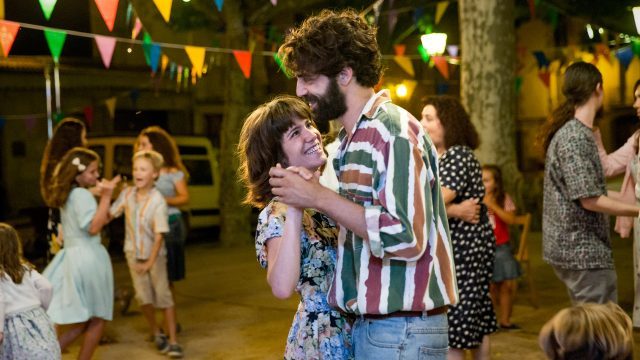
Esteve (David Verdaguer) and Marga’s (Bruna Cusí) life changes when their niece comes to live with them in Summer 1993
Summer 1993 plays out like an intricate, intellectual horror film, reminiscent of such genre classics as Robert Mulligan’s The Other, Mervyn LeRoy’s The Bad Seed, and even Richard Donner’s The Omen, though without any supernatural elements. Frida is not inherently evil, but from the minute she tells Anna not to touch her doll collection, it is clear she is teetering on the brink. Artigas, who was cast after Simón had interviewed nearly one thousand other children, is absolutely riveting as Frida, in complete control of her complicated character, her knowing eyes revealing wisdom well beyond her years. Cinematographer Santiago Racaj’s camera adores Artigas, exploring her face and expertly revealing her point of view. Accompanied by a lovely, emotive score, the camera is almost always in motion, sometimes just the slightest bit, representing Frida’s slightly askew, on-edge world. Robles is a charmer as Anna, seemingly too young to know what she is doing as an actress yet physically and emotionally right on target. Cusí excels as Marga, who is suspicious of Frida early on but understands that she is a girl in the midst of terrible grief, in desperate need of real connection to deal with her loss. Writer-director Simón uses water as a threat throughout the film, the pure, fresh liquid, from a bathtub to a swimming pool to a forest stream, a counterpart to the diseased blood that might have been passed down to Frida from her parents. At its core, Summer 1993 is a wise, heartfelt drama about the fears of both adults and children as they try to find their place in an ever-shifting world that can be as cold and cruel as it can be warm and loving.
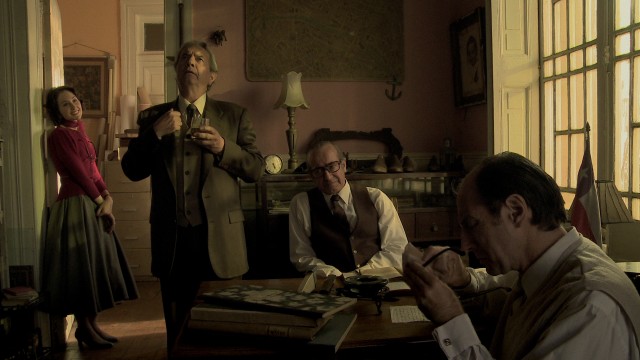
 In December 2016, the Film Society of Lincoln Center held the first of its two-part tribute to Chilean-French auteur Raúl Ruiz, a prolific writer and director who passed away in 2011 at the age of seventy. “Life Is a Dream: The Films of Raúl Ruiz” is now back for the second half of the celebration, from February 9 to 18, consisting of fourteen more works by Ruiz, highlighted by a week-long run of a new digital restoration of his 1999 magnum opus, Time Regained, a dramatization of Marcel Proust on his deathbed, thinking back on his own life as well as the fictional life of his characters. The festival also includes Ruiz’s last film, Night Across the Street, which proves to be a fitting finale for Ruiz, who left behind a legacy of more than one hundred movies and one hundred plays. An adaptation — or as Ruiz explained it, “adoption” — from a pair of short stories by Imaginist writer Hernán del Solar, Night Across the Street follows the odd meanderings of Don Celso (Sergio Hernandez), an old man about to retire from his office job. Past, present, and future, the real and the imagined, merge in abstract, surreal ways as Don Celso goes back to his childhood, where he (played as a boy by Santiago Figueroa) takes his idol, Beethoven (Sergio Schmied), to the movies and gets life lessons from Long John Silver (Pedro Villagra). As an adult, he hangs out with the fictional version of French teacher and writer Jean Giono (Christian Vadim), whose real self and family appear to be elsewhere. And he visits a haunted hotel run by Nigilda (Valentina Vargad) where he believes he will meet his doom.
In December 2016, the Film Society of Lincoln Center held the first of its two-part tribute to Chilean-French auteur Raúl Ruiz, a prolific writer and director who passed away in 2011 at the age of seventy. “Life Is a Dream: The Films of Raúl Ruiz” is now back for the second half of the celebration, from February 9 to 18, consisting of fourteen more works by Ruiz, highlighted by a week-long run of a new digital restoration of his 1999 magnum opus, Time Regained, a dramatization of Marcel Proust on his deathbed, thinking back on his own life as well as the fictional life of his characters. The festival also includes Ruiz’s last film, Night Across the Street, which proves to be a fitting finale for Ruiz, who left behind a legacy of more than one hundred movies and one hundred plays. An adaptation — or as Ruiz explained it, “adoption” — from a pair of short stories by Imaginist writer Hernán del Solar, Night Across the Street follows the odd meanderings of Don Celso (Sergio Hernandez), an old man about to retire from his office job. Past, present, and future, the real and the imagined, merge in abstract, surreal ways as Don Celso goes back to his childhood, where he (played as a boy by Santiago Figueroa) takes his idol, Beethoven (Sergio Schmied), to the movies and gets life lessons from Long John Silver (Pedro Villagra). As an adult, he hangs out with the fictional version of French teacher and writer Jean Giono (Christian Vadim), whose real self and family appear to be elsewhere. And he visits a haunted hotel run by Nigilda (Valentina Vargad) where he believes he will meet his doom.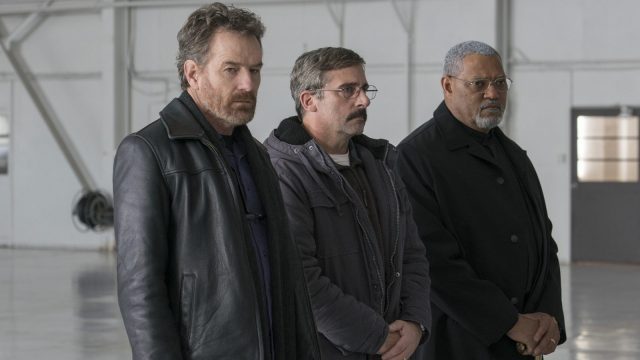
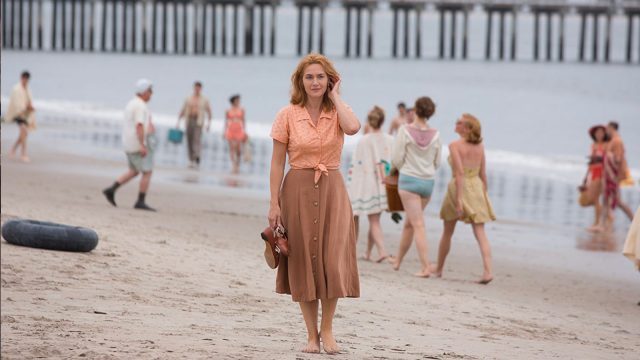
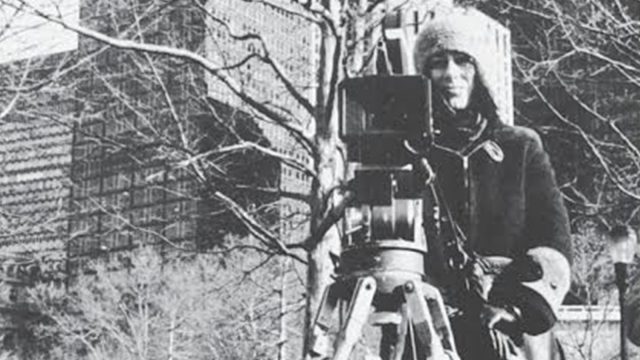
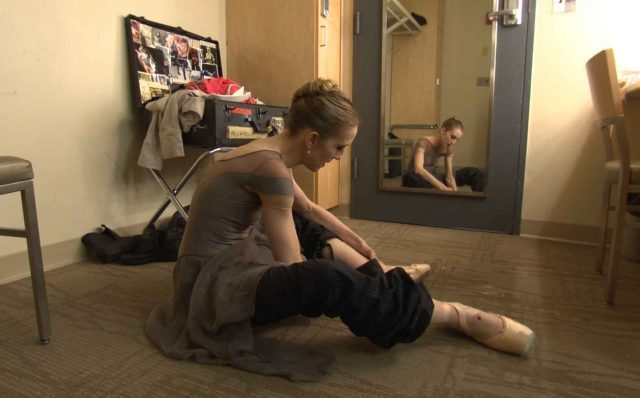
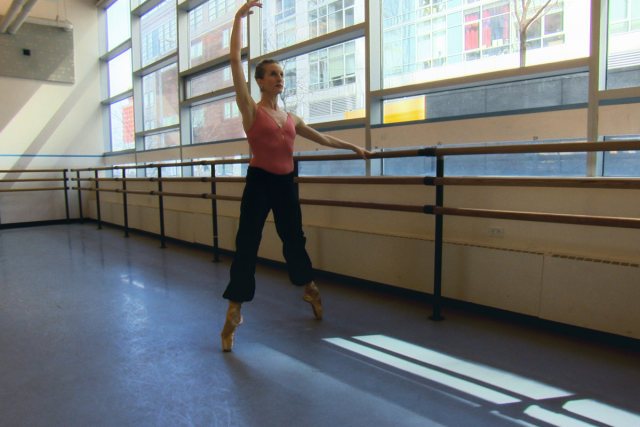
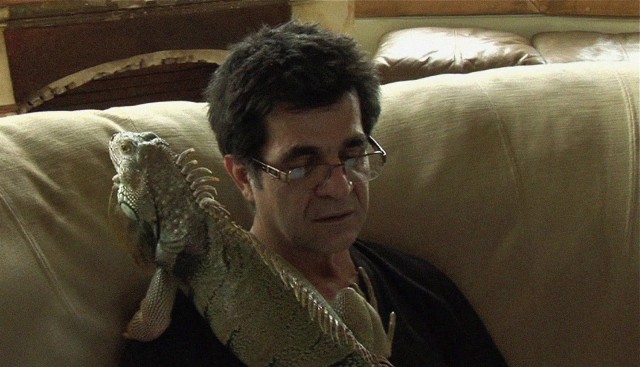
 “You call this a film?” Jafar Panahi asks rhetorically about halfway through the revealing documentary This Is Not a Film. After several arrests beginning in July 2009 for supporting the opposition party, the highly influential and respected Iranian filmmaker (Crimson Gold, Offside) was convicted in December 2010 for “assembly and colluding with the intention to commit crimes against the country’s national security and propaganda against the Islamic Republic.” Although facing a six-year prison sentence and twenty-year ban on making or writing any kind of movie, Panahi is a born storyteller, so he can’t stop himself, no matter the risks. Under house arrest, Panahi has his friend, fellow director Mojtaba Mirtahmasb (Lady of the Roses), film him with a handheld DV camera over ten days as Panahi plans out his next movie, speaks with his lawyer, lets his pet iguana climb over him, and is asked to watch a neighbor’s dog, taking viewers “behind the scenes of Iranian filmmakers not making films.” Panahi even pulls out his iPhone to take additional video, photographing New Year’s fireworks that sound suspiciously like a military attack. Panahi is calm throughout, never panicking (although he clearly does not want to take care of the barking dog) and not complaining about his situation, which becomes especially poignant as he watches news reports on the earthquake and tsunami disaster in Japan.
“You call this a film?” Jafar Panahi asks rhetorically about halfway through the revealing documentary This Is Not a Film. After several arrests beginning in July 2009 for supporting the opposition party, the highly influential and respected Iranian filmmaker (Crimson Gold, Offside) was convicted in December 2010 for “assembly and colluding with the intention to commit crimes against the country’s national security and propaganda against the Islamic Republic.” Although facing a six-year prison sentence and twenty-year ban on making or writing any kind of movie, Panahi is a born storyteller, so he can’t stop himself, no matter the risks. Under house arrest, Panahi has his friend, fellow director Mojtaba Mirtahmasb (Lady of the Roses), film him with a handheld DV camera over ten days as Panahi plans out his next movie, speaks with his lawyer, lets his pet iguana climb over him, and is asked to watch a neighbor’s dog, taking viewers “behind the scenes of Iranian filmmakers not making films.” Panahi even pulls out his iPhone to take additional video, photographing New Year’s fireworks that sound suspiciously like a military attack. Panahi is calm throughout, never panicking (although he clearly does not want to take care of the barking dog) and not complaining about his situation, which becomes especially poignant as he watches news reports on the earthquake and tsunami disaster in Japan.